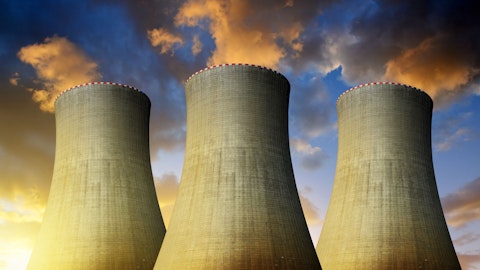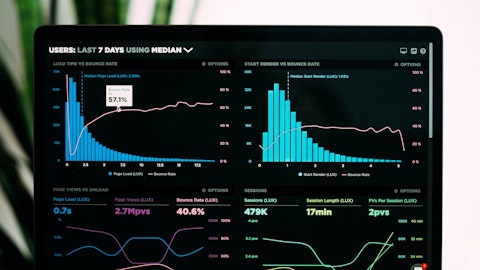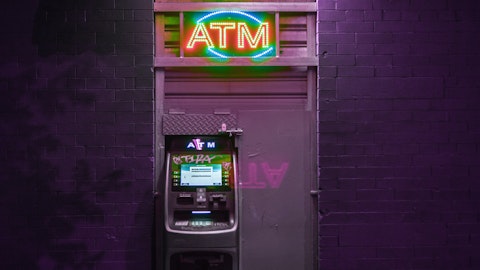Daniel Eggers: David, it’s a good question. I’d say that — as I said, we’ve learned a lot in 2022 about opportunities going forward. We have a lot of things in queue that we’re looking at right now. Joe reiterated the fact that we’re still very interested in inorganic opportunities when they make the right sense for us and maintaining that flexibility. And I think there’s $2 billion certainly afforded that to us to look at opportunities they progress this year and into next year makes a lot of sense. I don’t think we have a shot clock saying we’re going to have a decision by X date to release some amount of this money if we don’t have a an investment or whatever, but we’ll be prudent as we saw this year as far as making high-return investments and then returning the excess. And that’s how you should look at us moving forward.
David Arcaro: Okay. Got it. And then I was just wondering, just digging a little bit more into the hydrogen opportunities, I was curious which end markets you’re envisioning in terms of who might be the off-takers for the hydrogen. Wanted to clarify, they’re taking the volume directly from the site so you don’t have to deal with transportation. And I was also just curious if there’s an electrolyzer producer or technology identified at this point.
Joseph Dominguez: Yes, David. On the latter, we have that — the developer and who’s going to make the electrolyzers. We have a pretty good sense of that. And we haven’t announced it first day and we went into a competitive process. So I’m going to hold on that. In terms of the offtake, you’re exactly right. We’re looking for opportunities where the customer counterparty is at the site, taking the hydrogen at the site without the need to compress or otherwise transform through pipelines or whatnot the hydrogen to other facilities. I guess the cautionary point on all of that is that we’re part of this hub and that hub is still evolving. And so I do anticipate there are possibilities that hubs will include pipeline hydrogen to customers that are off our premises, and we’ll see how that kind of plays out.
And I hate to not share it all, but I don’t want to front-run the announcements we’ll be making on this, and we’ve still got some commercial terms that we’ve got to work through and get these deals executed.
David Arcaro: Okay. Got it. And no indication at this point as to just the end market in terms of if it’s industrial uses or fertilizer or jet fuel or other areas like that?
Joseph Dominguez: Not proportionately, but the answer is yes. I think at the end of the day, it’s going to be all of the above will be markets for hydrogen that are at best produced at our site. But let me kind of leave it there.
Operator: And our next question comes from Paul Zimbardo from Bank of America.
Paul Zimbardo: I was hoping, could you elaborate a little bit on that comment on the slide about working with the state policymakers to reduce the nuclear support, I assume, the ZECs? What states are you working with? And what would the timing, whether that’s legislative or regulatory, to get conclusion?
Joseph Dominguez: Paul, I’ve long ago learned that the worst way to kind of have these discussions with policymakers is to talk a heck of a lot about them on earnings calls because we’re having these conversations where you would expect us to have them. Let me flip it over to Kathleen with the caution that these are confidential discussions and we’ll see how they unfold.





